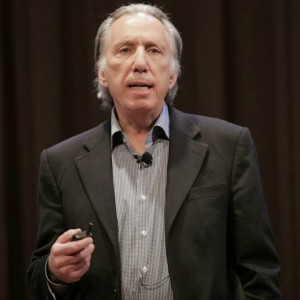What are lawyers worth? Self-regulation perpetuated 'bespoke myth,' op-ed says

Mark Cohen. ABA Journal file photo by Arnold Adler.
Lawyers are so expensive because, until recently, law operated as a guild rather than a competitive market, according to an op-ed by a fellow at Northwestern University Pritzker School of Law.
The system of lawyer licensing had fostered a “bespoke myth” that maintained all legal matters were unique, inherently complex and worthy of premium rates, according to the Forbes article by Mark Cohen.
“Lawyers believed they were exceptional by dint of licensure; only lawyers were qualified—or so they believed—to perform the work they did,” he said.
Law is both a profession and a business, and the distinction could be recognized by separating regulation of the practice of law from the business of law, Cohen says. He points to the United Kingdom, where the Law Society governs practice issues and the Solicitors Regulatory Authority determines permissible business structures for legal services.
Law practice is changing, partly because of technology and the oversupply of lawyers, according to Cohen. Now there is a “digital legal marketplace” where lawyers work alongside other professionals and machines, he says.
In the new marketplace, consumers will pay a premium for differentiated legal expertise and skills, but not for legal delivery, Cohen writes.
“Most lawyers have an ethos and reward system that values all tasks and client matters equally,” Cohen says. “That’s different than the client perspective that assigns different values to legal assistance. This helps explain law’s resistance to technology and process. It also accounts for the high cost of legal services and why legal consumers and the millions of unserved in need of legal services believe that lawyers are not worth what they charge.”
In the changing world, many lawyers will no longer be working in a traditional law firm structure, Cohen asserts. Instead, many will soon be working in corporate environments where they will have to shorten delivery cycles, streamline processes, work within budgets, identify products to replace services, and automate. “They will be rewarded by achievement of these metrics, not by hours billed,” he says.
And the result will be affordable legal services, he says.
Cohen was a founder of Clearspire Law, a now-shuttered law firm where lawyers worked remotely, and Clearspire Service Co., which supported the firm’s business operations. He conducts professional activities under the LegalMosaic brand.



